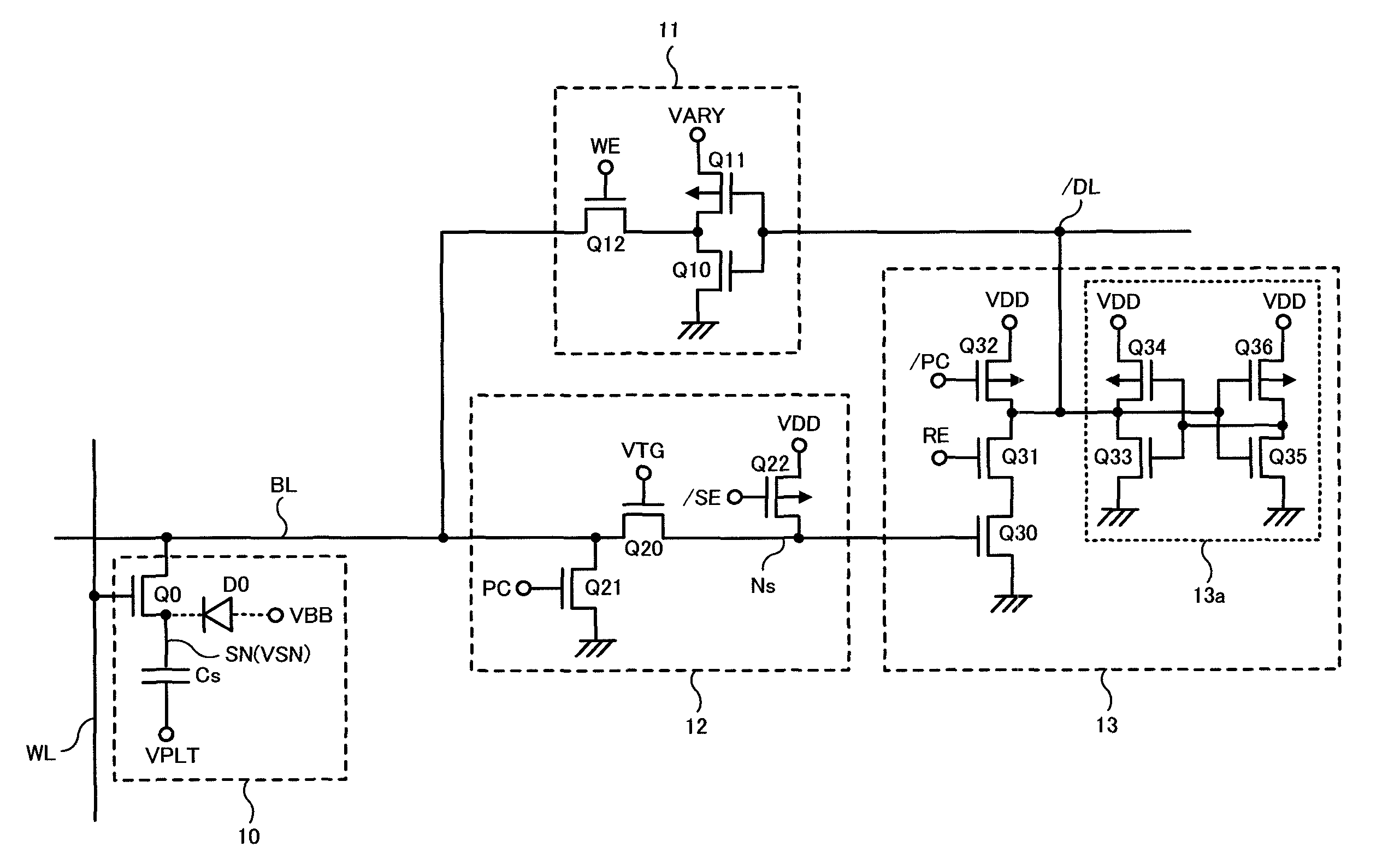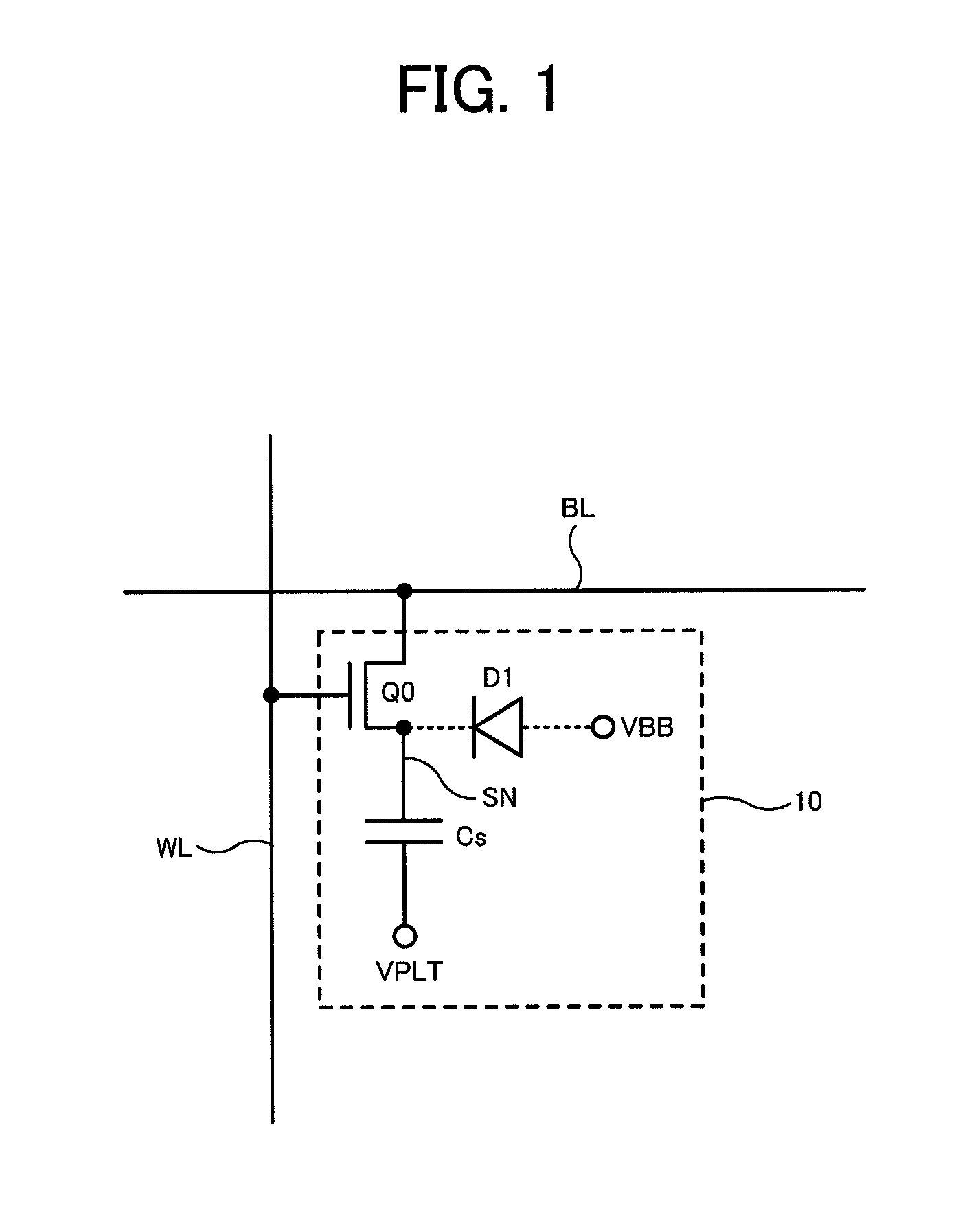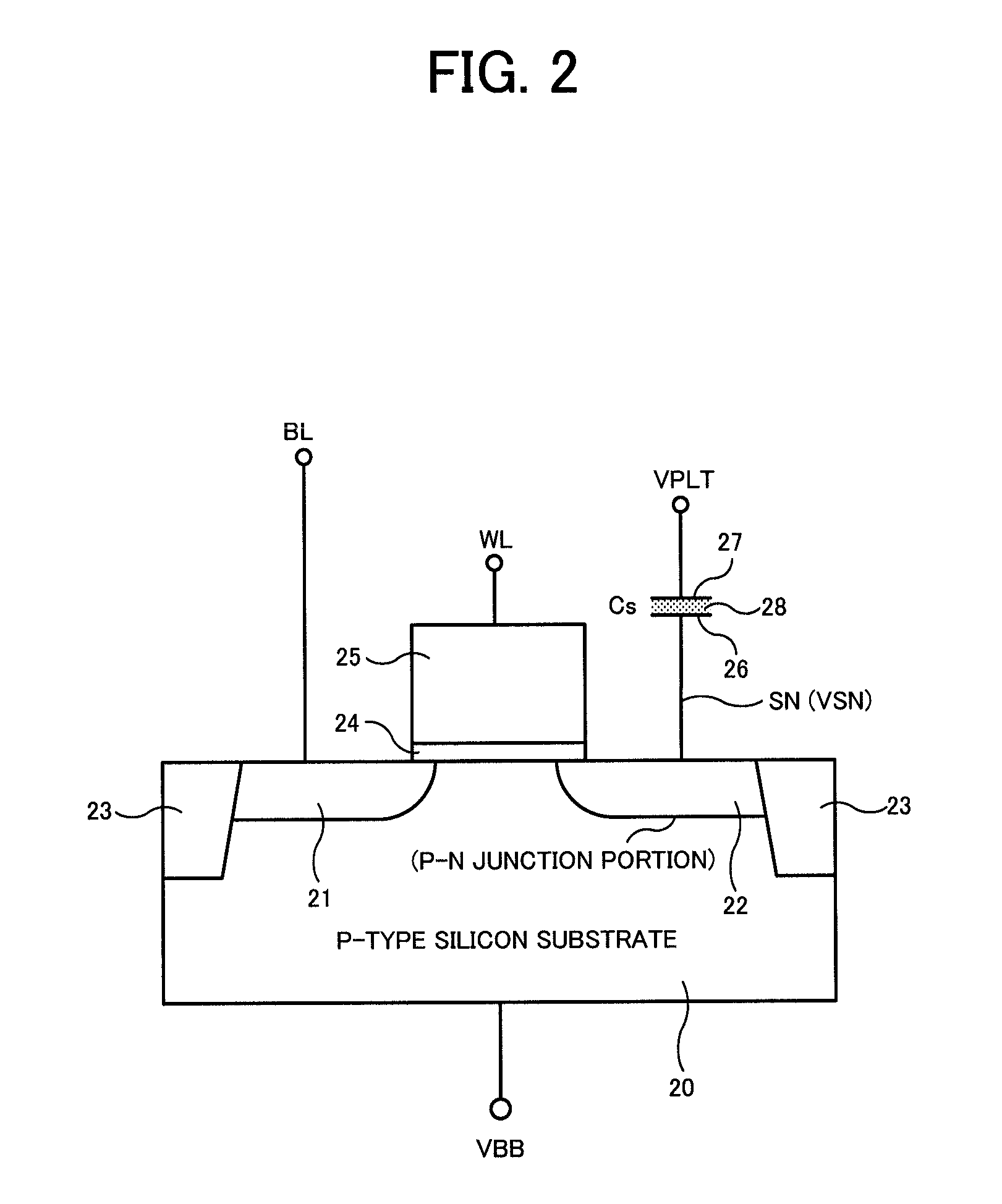Semiconductor device, semiconductor memory device and data processing system comprising semiconductor system
a semiconductor memory and memory device technology, applied in the field of semiconductor memory devices and data processing systems comprising semiconductor systems, can solve the problems of increasing reducing the data retention time of the memory cell, and increasing the boost voltage required for driving word lines, etc., to achieve excellent operating margin for the sense amplifier, reduce the write voltage of the memory cell, and high speed operation
- Summary
- Abstract
- Description
- Claims
- Application Information
AI Technical Summary
Benefits of technology
Problems solved by technology
Method used
Image
Examples
Embodiment Construction
[0030]Typical examples of a technical idea solving the problems of the present invention will be shown. However, it goes without saying that the present invention is not limited to the examples of the technical idea and consists in the scope of the claimed invention.
[0031]The technical idea of the present invention is that data (charge amount) of a memory cell (a capacitor) is read out to a bit line, a sense amplifier in which the bit line is connected to a gate of a transistor is configured to amplify the potential of the bit line to an operation voltage of the sense amplifier, a third voltage (VARY) corresponding to high-level data (generally corresponding to “1”) of the memory cell is set lower than a second voltage (VDD) as the operation voltage of the sense amplifier, while the third voltage (VARY) is set higher than a transfer control voltage (VTG) applied to a gate of a transfer transistor (transfer gate) of a transfer control circuit placed between the bit line and the gate ...
PUM
 Login to View More
Login to View More Abstract
Description
Claims
Application Information
 Login to View More
Login to View More - R&D
- Intellectual Property
- Life Sciences
- Materials
- Tech Scout
- Unparalleled Data Quality
- Higher Quality Content
- 60% Fewer Hallucinations
Browse by: Latest US Patents, China's latest patents, Technical Efficacy Thesaurus, Application Domain, Technology Topic, Popular Technical Reports.
© 2025 PatSnap. All rights reserved.Legal|Privacy policy|Modern Slavery Act Transparency Statement|Sitemap|About US| Contact US: help@patsnap.com



